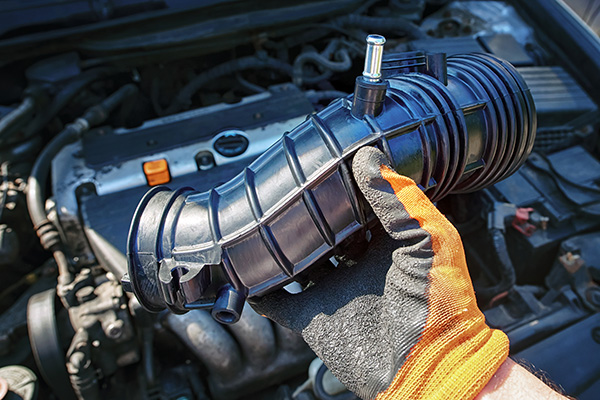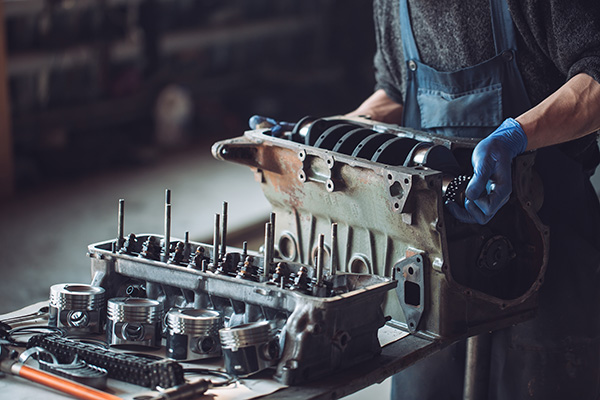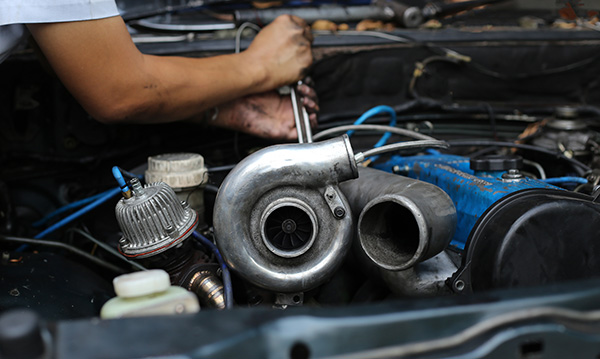Posted on 7/25/2025

Your car’s oxygen sensor plays a big role in engine performance and fuel efficiency. It monitors the amount of oxygen in your vehicle’s exhaust gases and sends this information to the engine’s computer, which then adjusts the air-fuel mixture for optimal combustion. When the oxygen sensor begins to fail, it can cause a range of problems that affect how your car runs and how much fuel it uses. Understanding the warning signs can help you address issues early and avoid bigger repairs down the road. Check Engine Light Illuminates One of the first and most common signs of a bad oxygen sensor is the check engine light turning on. Because the oxygen sensor affects engine efficiency and emissions, your vehicle’s onboard diagnostics system will detect any irregularities and alert you. While the check engine light can come on for many reasons, a faulty oxygen sensor is a frequent culprit. A professional diagnostic scan is needed to confirm the exact c ... read more
Posted on 6/27/2025

When your vehicle starts showing signs of serious engine trouble like rough idling, knocking sounds, power loss, or even complete failure, you’re faced with a critical decision: should you replace the engine entirely or opt for an engine overhaul? Engine replacements are effective, but they come with significant costs and complexities. In many situations, an engine overhaul is a smarter, more economical alternative that restores performance without requiring a brand-new unit. If you’ve been told your engine is on its last legs, take a moment to understand why overhauling it might be the better option. 1. Engine Overhauls Are More Cost-Effective Replacing an engine, especially with a new or manufacturer-rebuilt one, can easily run into several thousands of dollars. This is a significant financial commitment, especially for vehicles that still have a lot of life left beyond the engine compartment. An engine overhaul typically involves replacing worn inter ... read more
Posted on 5/30/2025
%20copy.jpg)
If your car has started running hot, acting strange, or producing thick white smoke, you might be dealing with something more serious than a worn-out part—a blown head gasket. It’s one of those repairs you hope you never have to deal with, but knowing the early warning signs can help you catch it before more damage is done. The head gasket sits between the engine block and the cylinder head. It seals off the combustion chamber and keeps coolant and oil flowing through separate passages. When it fails, those systems can mix in ways they’re not supposed to, and the result isn’t good. Here’s what to watch for if you suspect your head gasket is on its way out. Overheating That Doesn’t Go Away Overheating is often one of the first signs of a blown head gasket. It usually happens because coolant is leaking into the combustion chamber or getting pushed out of the system entirely. If your engine temperature keeps climbing, even after addi ... read more
Posted on 4/25/2025

Tailgating is always a bad idea—but when the weather turns bad, it becomes downright dangerous. Following too closely during rain, snow, fog, or icy conditions dramatically increases the chances of a rear-end collision, and it leaves you with far less time to react when something goes wrong. Unfortunately, many drivers don’t adjust their habits when the weather gets worse. They follow the same distance, brake at the same points, and trust their instincts instead of giving themselves the space and time they really need. In reality, tailgating in bad weather is one of the quickest ways to end up in an avoidable crash—and often takes other drivers down with you. Reduced Traction Means Longer Stopping Distance The main reason tailgating is more dangerous in bad weather comes down to traction. When the road is wet, icy, or even just slick with leaves or oil buildup, your tires can’t grip the surface as well. That means your stopping distance incre ... read more
Posted on 3/28/2025

Turbochargers have become a key feature in modern vehicles, offering both increased power and improved fuel efficiency. Whether in sports cars, daily commuters, or even diesel trucks, turbochargers help engines generate more power without requiring a larger engine size. But how exactly do they work, and why are they so effective at boosting performance and fuel economy? Let’s see what makes turbochargers such a valuable addition to today’s vehicles. What Is a Turbocharger A turbocharger is a forced induction system that increases an engine’s power output by forcing more air into the combustion chamber. Unlike a naturally aspirated engine, which relies on atmospheric pressure to bring in air, a turbocharger uses exhaust gases to spin a turbine, which in turn compresses and pushes more air into the engine. More air means more oxygen, which allows the engine to burn more fuel and generate more power. The turbo system consists of two main parts: The t ... read more